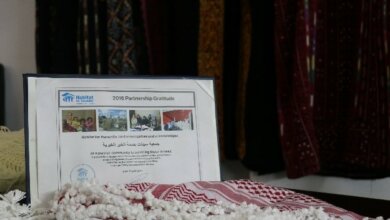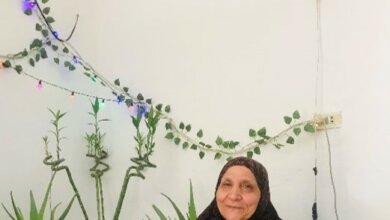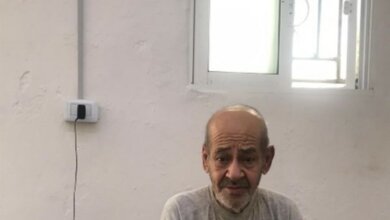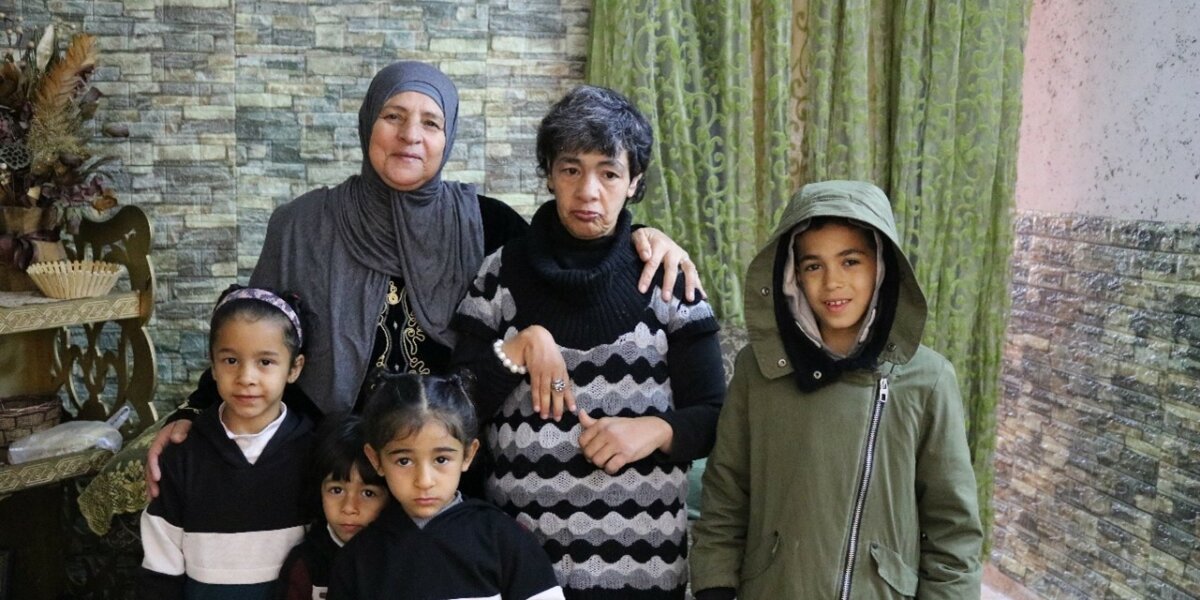

When people grow older, most of them need care more than anytime before. However, Iftikar, a 67-year-old Jordanian woman, decided to continue what she had started to do when she was a young mother: raising and taking care of her grandsons and granddaughters side by side with her daughter, who suffers from a mental disability, and her son, who recently had his leg amputated in a car accident.
This strong woman lives today with 7 children, who were abandoned by their parents, and 2 people with disabilities (PWD) son and daughter in one small humble apartment. She was forced to be the lonely breadwinner for this big family while she does not receive any fixed monthly income except for $71 from the Ministry of Social Development. Such difficult circumstances make her tasks more difficult and almost impossible.
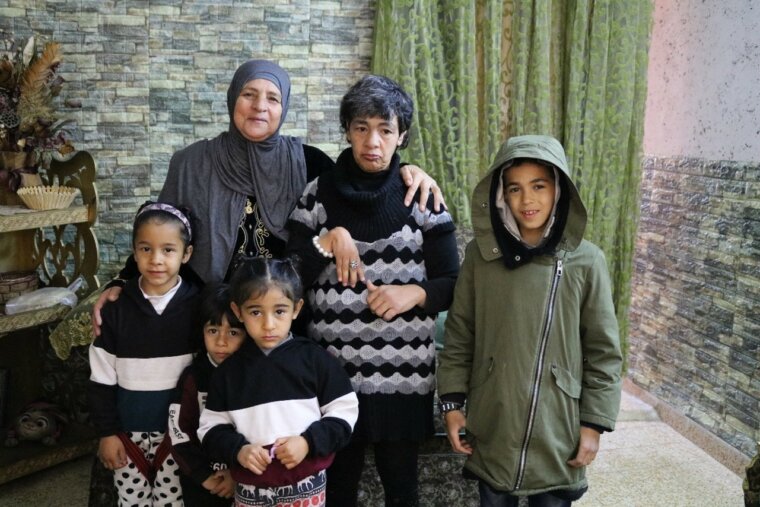
A team of Habitat Jordan had visited her house and conducted a socio-economic assessment. It was found that she with her family moved out from her old house after a fire broke out and she was unable to pay the rent for the last three months, too.
As for the new house, it was found that it suffers from several problems; one of them is an electrical wiring problem, which threatens the children’s safety and causes a frequent power cut. In addition, there was a sanitation problem in the house’s toilet, and there was no water heater. The kitchen also was in a vey bad condition; mold and insects spread in the kitchen’s cupboards which in turn led to spoil food and cause ailments. Therefore, Iftikar has become one of MERCI project’s beneficiaries, a project implemented by Habitat Jordan, and then her house got the needed rehabilitation to become safer and a more decent place to live.
Habitat Jordan is always careful to measure the long-term impact that can achieve through its intervention. Accordingly, Habitat Jordan team conducted a check visit after a while from finishing the rehabilitation work. The team was interested to listen from Iftikar about her feedback. She said that she with her family today live a safer life at their house with better health conditions, as food has become stored in a clean place, and the risks of electric shocks and the spillage of hot water which is heated into big pots for bath purposes have been eliminated.
Habitat Jordan is reaching out to Iftikar through networking with other NGOs, CBOs, as well as other local social institutions, as they all seek for providing vulnerable people within the Jordanian community with the services they need, so they can enjoy a better life. Habitat Jordan’s intervention extended to conduct several referrals in order to improve the general economic, psychological, and health family’s circumstances, therefore, Iftikar’s son profile was referred to the Ministry of Social Development. The family profile was also referred to other entities seeking for having monthly cash assistant in order to buy their food and other basic needs. Also, it was referred to some NGOs which are responsible for providing services, equipment, as well as psycho-social support sessions for their beneficiaries.
